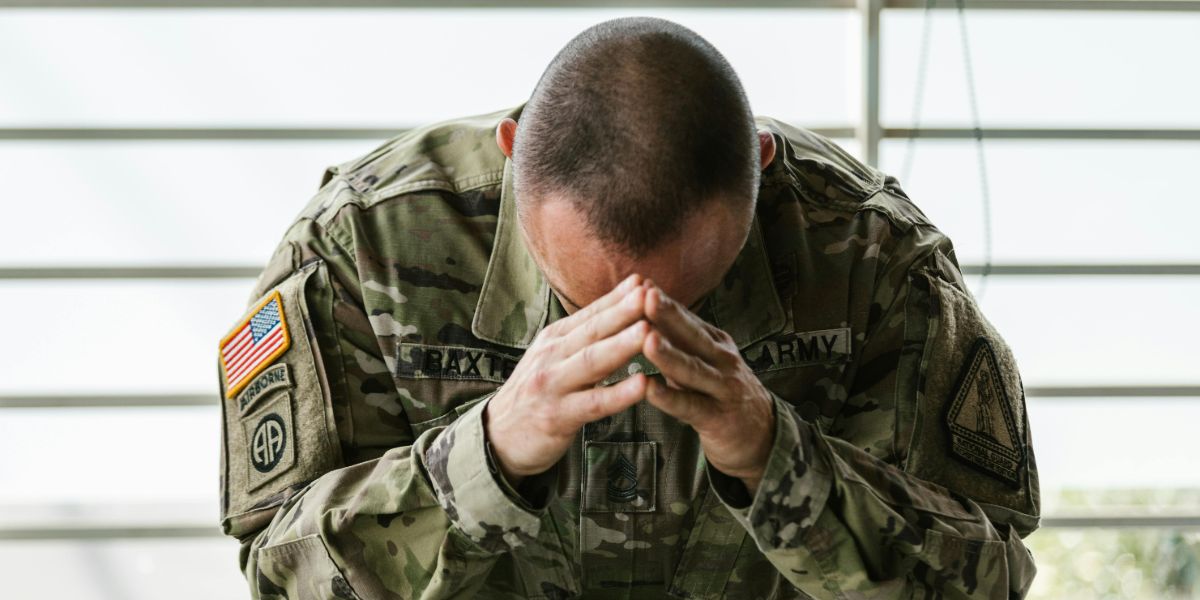Breaking free from addiction isn’t as easy as waving a magic wand, and you’re cured. Addiction is a chronic condition, meaning it will follow you for the rest of your days. While you can get clean and sober in an outpatient program, you’ll need to know your addiction relapse triggers to manage your conditions.
Identifying addiction triggers gives you an advantage in outpatient recovery. When you know what causes your urges to use drugs or alcohol, you can stay away from these influences or call someone for support to help you make it through it.
If you’re not an addict, you might think that all addicts need to do is stop using, and that’s it. But if you’ve never experienced the slavery of addiction on your mind, you have no idea how triggers can torment your mind until you give in to temptation.
Let’s educate you on these negative influences and give you a few strategies for managing addiction triggers. When addicts and their support community understand what their triggers are, it’s easier to deal with them and stop the disease of addiction returning to ruin your life.
Understanding Addiction Triggers – What they Are and How they Work
Experiencing a trigger brings back memories or feelings you experienced during your addiction. They start a cascading emotional state that feels like it’s burning into your brain, tempting you to use again. If you don’t recognize it and control it, you’ll spiral out of control and before you know it, you’re using again.
The trigger sparks an intense desire to relapse. It could come from an internal or external influence, such as feeling lonely or being in a place where you’re around drugs and alcohol. Every addict has a set of unique triggers. Learning coping skills to manage the feelings that bubble to the surface when you encounter one is the only way to get your head together and continue your journey along the sober path in life.
If you don’t identify your triggers, you’ll be powerless against their influence on your mind, and you’ll keep bouncing between relapse and recovery.
What are the Triggers that Present Relapse Risk?
Many addicts find it tough to identify their triggers when they’re new to recovery. Your therapist can help you discover these internal and external influences, preparing you with effective coping strategies to deal with your environmental, physical, behavioral, and emotional triggers.
Emotional Addiction Triggers
What are emotional triggers? How do they differ from the other four types? Emotional triggers are internal, popping up in your mind when you enter a negative emotional state driven by your thought process. If you’re dealing with a co-occurring mental health disorder like depression or anxiety, you’re at a higher risk of experiencing emotional triggers that push you over the edge and into relapse.
Your therapist will teach you how to deal with emotional triggers and give you strategies like mindfulness medication to help you recognize and suppress the effect they have on your mind. Here’s a list of emotional triggers you might run into during your recovery.
- HALT – Being “Hungry, Angry, Lonely and Tired.”
- Feeling emotionally overwhelmed by your responsibilities.
- Intense feelings of anger, fear, or joy.
- Being criticized or rejected by other people.
- Being hard on yourself for your past mistakes.
- Lowered self-esteem due to unrealistic expectations of how you want your life to turn out.
- Hearing a song that reminds you of a time when you were using.
- Feeling uncertain about your recovery and chances of staying sober.
- Frustration at your slow progress in your recovery plan.
- Occasions like celebrations and anniversaries that bring up toxic emotions.
- Experiencing a breakup with a partner.
- Undergoing financial stress.
Self-care strategies like setting healthy boundaries, connecting with your support group, and staying mindful of your thoughts and emotions can help you get through these hard times. Therapy is absolutely essential to your recovery. You’ll learn coping strategies to take back your personal power and quieten the voice in your head telling you to relapse.
Environmental Addiction Triggers
These triggers are external. They’re places, people, or events that spark the seed of relapse and cause you to steadily spiral out of control to a point where you relapse.
- Visiting locations where you used to use. Or being in a place like a bar where alcohol and drugs are around you.
- Being around old friends or other people who use.
- Seeing a movie or TV show that reminds you of using.
- Browsing social media posts or websites where people discuss the benefits of using drugs or alcohol.
- Going past the venue where you used to score drugs.
You’ll need to avoid the people and places in your life which inspire you to use. Be aware of your surroundings at all times and remove yourself from any toxic environment that might stir up a trigger and place you at risk of relapse.
Behavioral Addiction Triggers
These are habits and activities like going to a place where you used to use drugs or alcohol. It also includes being bored. When you don’t have any productive outlet for your mind to keep itself busy, it will revert to behavior that fills your time – and that’s using drugs or alcohol.
- Changing your sleeping schedule or eating poorly.
- Skipping your therapy sessions or support meetings.
- Downtime where you don’t have anything to do, and your mind gets bored and wanders.
- Setting unrealistic recovery goals with no strategy to reach them.
Your therapist will work with you to design a routine that keeps you busy. Exercising or taking up a hobby are great tactics to keep your mind focused and present, avoiding the risk of relapse from boredom. Set boundaries with people who you used to hang out with when you were using, and be mindful of your behavior at all times.
Psychological Addiction Triggers
Psychological triggers are the negative emotions and false beliefs you have that occupy your thoughts and perpetuate a negative emotional state. If you feel worthless and have low self-esteem, you might wonder what the point is with getting sober, and you’ll relapse. It’s common for emotional and psychological triggers to collaborate in a whirlwind of stress and trauma that tip you over the edge and back to using.
- Feeling like you don’t matter and no one will miss you if you’re gone.
- Feeling worthless with no appreciation for life.
- Judging yourself for making a mistake, even if it’s a small one.
- Blaming yourself for an outcome you couldn’t control.
- Mulling over the past and dredging up negative memories.
You can overcome psychological triggers by addressing the underlying cause, such as stress, trauma, or negative beliefs. Focusing on your self-care strategy can help you overcome these triggers and lessen the power that cravings and negative thought patterns have on your mind.
Developing Coping Mechanisms and Strategies to Prevent Relapse
Unless you understand your triggers, you’ll constantly yo-yo between recovery and relapse, and you won’t understand why you’re doing it. Developing coping mechanisms to deal with these triggers is the only way to beat them and break free from the control they have over your mind.
Keeping yourself occupied is the number-one strategy for avoiding triggers. Find a healthy hobby you can use to fill your time or join a sports team or outdoors club where you can surround yourself with sober people and build a support community. Sometimes, something as simple as going out for a jog or catching a workout at the gym is enough to dissipate the effect triggers have on your mind.
Understanding the Stages of AUD and SUD Relapse
We can divide the relapse experience into three stages, mental, emotional, and physical. When you’re aware of each stage and the effect they have on your mind, we can develop a plan to help recognize each stage and side-step the effect they have on your thought processes.
What Is a Mental Relapse?
This stage of relapse is when your mind keeps repeating thought patterns that jeopardize your sobriety. If you’re constantly thinking about the good times you experienced when using or reveling in the thought of being high or drunk and how good it used to feel, it’s only a matter of time before it breaks you down and you relapse. You might find it hard to push aside these thoughts, and they slowly erode your focus on staying sober.
What Is an Emotional Relapse?
It’s common for addicts to go through stages in recovery where they experience an onslaught of negative emotions like fear, anxiety, anger, and sadness. If you spend time wallowing in these feelings it leads to your mind and thought processes becoming impulsive. You might just decide to throw away your sobriety just to cope with the effect these emotions have on your mind.
What Is a Physical Relapse?
When the mental and emotional stages of relapse have their claws in you, it’s only a matter of time before you experience a physical relapse. Before you know it, you’re arriving at the bar, or the local open-air drug market, and your recovery goes out the window as you relapse.
Why You Need a Relapse Aftercare Plan in Addiction Recovery
What is a relapse prevention plan, and why do you need it? Before you leave Carrara, your case manager and therapist devise an aftercare plan personalized to help you avoid your unique triggers. Your relapse prevention plan gives you the tools and strategies you need to recognize your triggers when they show up and the effect they have on your emotional, mental, and physical state.
At Carrara, we give you an outpatient program focusing recognizing your triggers and building coping mechanisms to help you deal with them. Triggers have a powerful effect on your mind, behavior, and actions, but with the right coping strategies and a solid aftercare plan, you can overcome the grip they have on your mind and actions. You’ll always have someone to call when you’re feeling weak, and you feel you’re at risk of relapsing.
The reality is relapse is common in recovery, so don’t freak out if it happens to you. The key is to get yourself back into recovery as soon as you can. Reach out to your support group for help or call your therapist and pull yourself back on track to living your goal of a sober lifestyle.
Britney Elyse has over 15 years experience in mental health and addiction treatment. Britney completed her undergraduate work at San Francisco State University and her M.A. in Clinical Psychology at Antioch University. Britney worked in the music industry for several years prior to discovering her calling as a therapist. Britney’s background in music management, gave her first hand experience working with musicians impacted by addiction. Britney specializes in treating trauma using Somatic Experiencing and evidence based practices. Britney’s work begins with forming a strong therapeutic alliance to gain trust and promote change. Britney has given many presentations on somatic therapy in the treatment setting to increase awareness and decrease the stigma of mental health issues. A few years ago, Britney moved into the role of Clinical Director and found her passion in supervising the clinical team. Britney’s unique approach to client care, allows us to access and heal, our most severe cases with compassion and love. Prior to join the Carrara team, Britney was the Clinical Director of a premier luxury treatment facility with 6 residential houses and an outpatient program




